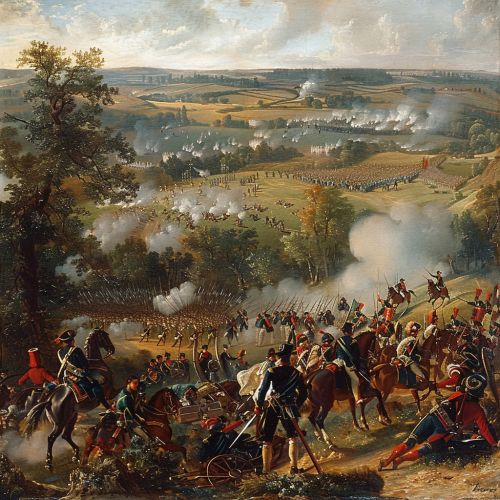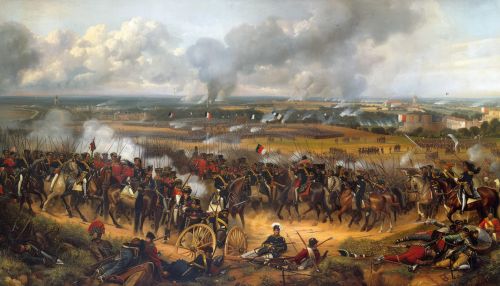Napoleonic Wars
Origins
The Napoleonic Wars were a series of conflicts fought between the French Empire, led by Napoleon Bonaparte, and a series of European powers. The wars were a continuation of the French Revolutionary Wars, which had been raging since 1792. The French Revolution had overthrown the Bourbon monarchy and established a radical new order based on the principles of liberty, equality, and fraternity.
Rise of Napoleon
Napoleon Bonaparte, a military officer from Corsica, rose to prominence during the French Revolution for his military prowess. In 1799, he staged a coup and declared himself First Consul of the French Republic. In 1804, he declared himself Emperor, effectively ending the French Republic and establishing the French Empire.
War of the Third Coalition
The War of the Third Coalition was the first major conflict of the Napoleonic Wars. It began in 1805 when the United Kingdom, Russia, Austria, and Sweden formed an alliance to oppose French expansion. The war culminated in the Battle of Austerlitz, where Napoleon's forces decisively defeated the Russian and Austrian armies.


Peninsular War
The Peninsular War, which began in 1808 and lasted until 1814, was a significant conflict during the Napoleonic Wars. It was fought on the Iberian Peninsula and involved Spain, Portugal, and the United Kingdom against France. The war was notable for the brutal guerrilla warfare that took place, and it significantly weakened the French Empire.
Invasion of Russia
In 1812, Napoleon launched an invasion of Russia, a decision that would prove disastrous. The Russian army employed a scorched earth policy, retreating deeper into Russia while burning crops and villages to deny the French supplies. The French army was eventually forced to retreat, suffering heavy losses during the harsh Russian winter.
War of the Sixth Coalition
The War of the Sixth Coalition, which lasted from 1812 to 1814, saw a coalition of European powers, including Russia, Prussia, Austria, Sweden, the United Kingdom, and several German states, rise against Napoleon. The coalition was successful, and Napoleon was exiled to the island of Elba.
Hundred Days
In 1815, Napoleon escaped from Elba and returned to France, beginning a period known as the Hundred Days. He quickly regained power, but his return to power was short-lived. He was defeated at the Battle of Waterloo by an alliance of British and Prussian forces, marking the end of the Napoleonic Wars.
Impact
The Napoleonic Wars had a profound impact on Europe and the world. They led to the spread of nationalism, the rise of the concept of total war, and significant changes in the balance of power in Europe. The wars also led to significant advancements in military tactics and strategy, many of which are still studied today.
See Also
French Revolutionary Wars Battle of Austerlitz Peninsular War Invasion of Russia (1812) War of the Sixth Coalition Hundred Days Battle of Waterloo
